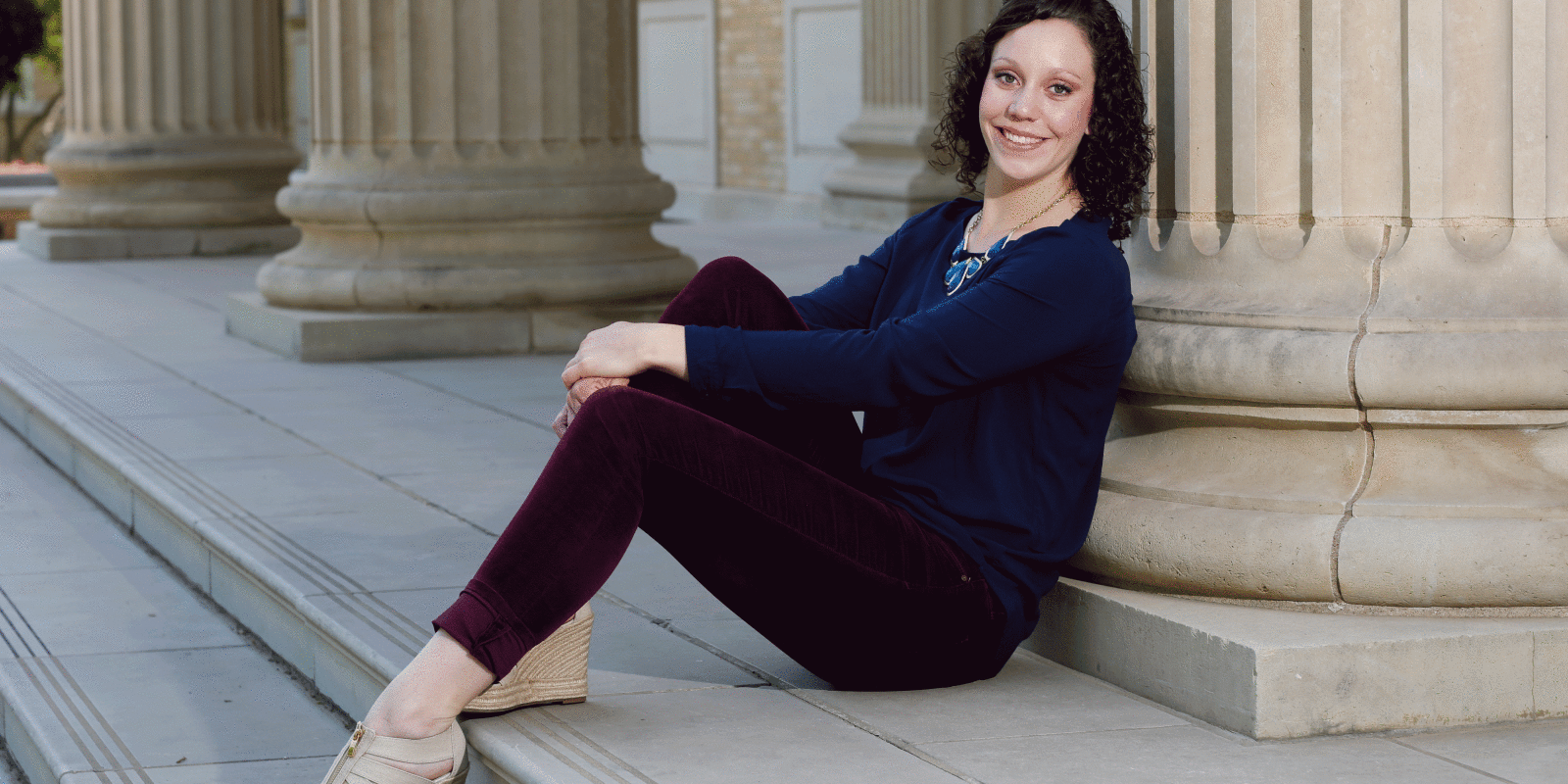
Culture, Diversity and Immigration in France
Caitlin McAteer traveled to Béziers, France and volunteered at a migrant-serving organization to better understand the complex issues of transnational migration.
To Caitlin McAteer ’14, holding the hand of a rejected asylum seeker was transformative. The Fulbright scholar met transnational migrants during a study abroad trip the summer before graduation.
“For as long as I can remember, I have always enjoyed sitting and watching people and wondering why we, as humans, do what we do,” said the anthropology graduate who turned her summer in France into a research project.
McAteer wanted to discover why some people perceive foreigners as a threat and how to better integrate migrants into their new countries, so she spent four weeks volunteering at La Cimade, a nonprofit organization assisting displaced refugees in Béziers, a town in southern France.
“France, like most places in the world, is caught in the fire, fervor and uncertainty of globalization”
McAteer
“I absolutely love the idea of using knowledge of systems, diversity and beliefs to make change in this world.”
McAteer’s interest in migration started with a project for an anthropology class, when she facilitated the transition to American life for a family from Burma. “The love and gratitude I felt from this family is initially what made me want to continue my work with refugees.”
“[The anthropology faculty] taught me that in the big picture of humanity, much of who we are is relative to our cultures and upbringings, and that to better understand one another is to better get along and appreciate what we can all bring to the table,” she said. “[They] have also pushed me to appreciate the beauty of culture and diversity, and how to use my knowledge to make a difference.”
Before leaving for France, McAteer studied about the virulent anti-immigrant sentiments, vocalized primarily by members of the country’s Front National political party. “These opinions were not shared by everyone,” she said. “But by a loud minority.”
In Béziers, she stayed with a family whose mother volunteered at La Cimade. In the town with roots dating back to the Roman Empire, she saw “strong racial tensions that lie simmering beneath its appealing surface.”
France permits migrants to stay in the country while seeking asylum. Groups such as La Cimade house and teach the new arrivals French while they wait for an official decision.
“Every day in the La Cimade office seemed chaotic,” McAteer said. While staff members and volunteers wanted to connect with the asylum seekers, government paperwork consumed all of their working hours.
The number of asylum petitions France grants is declining after three decades of anti-migrant legislation. “France, like most places in the world, is caught in the fire, fervor and uncertainty of globalization,” she wrote in her research thesis.
“For as long as I can remember, I have always enjoyed sitting and watching people and wondering why we, as humans, do what we do”
McAteer
As a temporary volunteer, McAteer had time to spend with some refugees. She and a Georgian woman walked around the city center, discussing the no-woman’s land inside France’s borders, where thousands of immigrants languish in statelessness. She held the woman’s hand as she cried at being denied asylum and worried about returning to her native country of Georgia and the ongoing violence in the former Soviet republic.
She used Bob Marley’s music to lure a withdrawn teenager from Kazakhstan out of his shell and teach him a few phrases in English.
In concluding her research work, McAteer suggested that La Cimade should transform the front lawn of the building in Béziers into a community space where refugees could interact with the town’s residents. She also proposed setting up a booth at summer festivals where residents could sell produce and artwork while intermingling in a friendly setting.
McAteer said a multidimensional approach to integration might be “likely to help build empathy toward refugees and migrants,” she wrote, adding that empathy is key to managing the fearfulness about migration brought on by globalization.

Your comments are welcome
1 Comment
I would think that Caitlin sounds like an amazing young woman, even if I wasn’t her grandmother. Her family certainly appreciates the many opportunities afforded her through TCU.
Sincerely,
Margie Mastrini
Related reading:
Features
Communicating Genetic Testing
Ashlyn Lisner ’15 wanted to find which communication techniques would encourage people to seek answers to genetic uncertainties.
Features, Research + Discovery
Bailey Betik’s Fascination with Words
The English major wrote several undergraduate research projects, called the activity “being in a long-term relationship with your mind.”